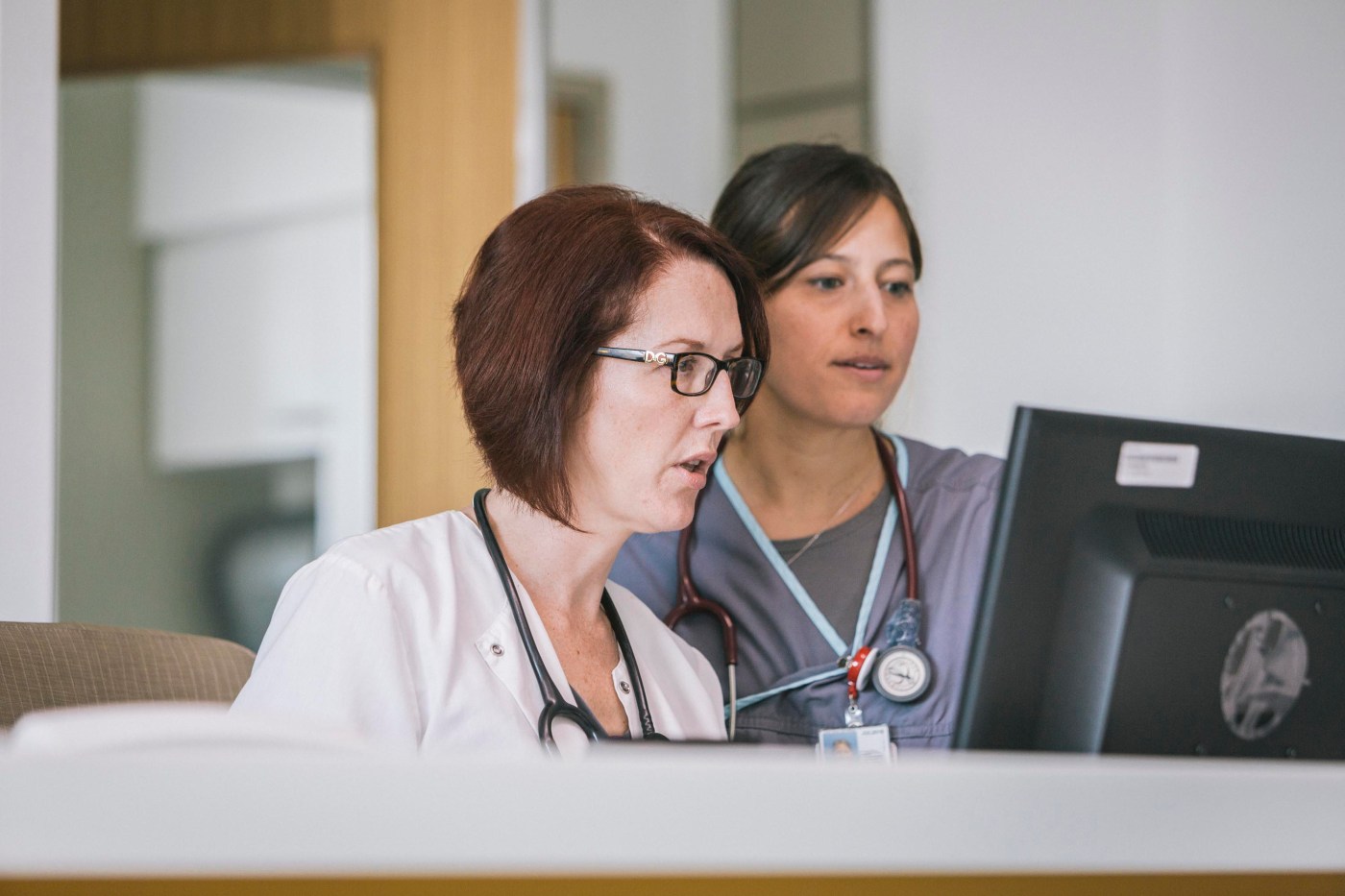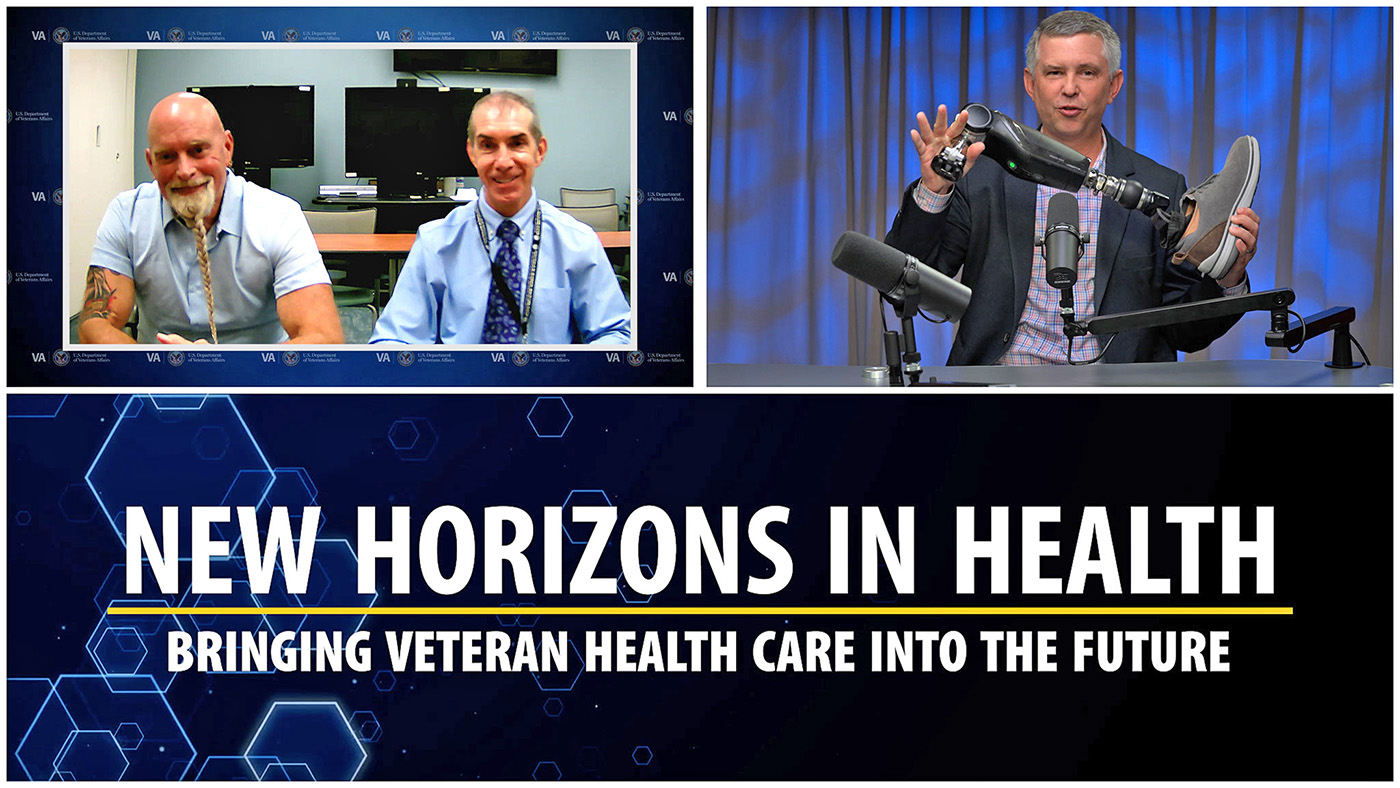When it comes to exploring new ways to care for patients, VA has a unique advantage: We’re the nation’s largest integrated health care system. And that means we can access the nation’s largest store of voluntary patient data.
Voluntary data
The Million Veteran Program is our national research effort that uses voluntary health data to identify genetic factors that contribute to disease, and even conditions like PTSD.
Voluntary data is allowing VA medical professionals across the country to conduct their own innovative research that will benefit millions of Americans.
In Virginia, researchers spent years studying how eye movement is affected by neurological disorders such as Parkinson’s Disease. They discovered that each disease is associated with a different eye movement abnormality. That means the presence of these disorders can be detected by having patients undergo simple, non-invasive eye tests. And it means they can be detected more accurately and much earlier – in some cases, up to 10 years before more serious symptoms emerge.
Precision Oncology
Data is also playing a big role in the groundbreaking work we’re doing in precision oncology.
For decades, cancer has either meant surgery or administering poison to kill the cancer that severely weakens the patient, or both.
But through precision oncology, we can study the genetic makeup of tumors and design treatments that attack the cancer, not the patient. VA has already built targeted therapies to attack some forms of leukemia. These therapies are more effective and are already making these cancers less lethal.
Precision oncology means earlier and more accurate cancer detection, less guesswork about treatment, and patients who are more comfortable and have more peace of mind. It’s no wonder one researcher called VA’s precision oncology program “the future of cancer care.”
Your family’s story
Creative use of data is also driving our new Veterans Legacy Memorial service, which lets families call up information about any Veteran buried in a national cemetery on a computer or their phone.
Soon they’ll be able to add their own stories to these pages, so everyone can learn about their loved ones who served this nation so bravely.
I’m proud to lead a VA in which so many skilled professionals are using technology and data to improve the lives of Veterans.
And I’m proud to say we are upholding VA’s lasting legacy as a center of innovation.
Topics in this story
More Stories
Under Secretary for Health talks with two Veterans who have benefited from a groundbreaking new way to attach a prosthetic limb.
In a new series that highlights advancements in VA health care, VA researchers and clinicians are appearing on a Veteran-themed media platform—Wreaths Across America Radio—to tout their critical work.
Recently published findings from the VA Disrupted Care National Project [...]







I am 65 years old, I was diagnosed of Parkinson’s disease at the age of 59. I had severe calf pain, muscle pain, slurred speech, frequent falls, loss of balance, difficulty getting up from sitting position. i was on Carbidopa and Pramipexole for two years, as the disease progressed my symptoms worsened, with my neurologist guidance i started on natural PARKINSON’S DISEASE TREATMENT from Rich Herbal garden w w w. richherbalgardens. c o m The treatment worked very effectively for my Parkinson’s, most of my severe symptoms simply vanished within the first 3 months on the treatment, i feel better now than I have felt in years and i can feel my strength again. My neurologist was very open when looking at alternative medicines and procedures, this alternative Parkinson’s disease treatment is indeed a breakthrough.
You say that the VA uses Health Data in order to improve conditions including PTSD?
Then please take a look at the Northern Part of Nevada in the Reno NV area.
It’s totally broken. Veterans are on a waiting list for Trauma Counseling. I’ve been waiting for 4 months now and I was told that I was 57th on the list?????
We’re just numbers on a List, Why? because of the so-called lack of Mental Health Counselors, blah, blah, blah, etc, etc.
How an umbrella of the VA as in the St George, Salt Lake City Utah region can be such a class act in taking care of veterans and their needs while the Reno, NV region is broken and at the bottom of the list as far as being a class act.
Oh sure they have alternatives for the veterans if they need counseling which is only their way of saying “we’re not to blame”. Private Sector outsourcing is available BUT it’s only for 12 weeks then when returning to the VA hospital for counseling. Here we go again “We are on the bottom of the List”
There’s that word List and numbers again.
I was never treated so well as I was in the Utah region because of only a choice to travel 77 miles one way to the Las Vegas Veterans Hospital and be counseled or travel let’s say 35 miles one way to the St George Utah Vet Center. No brainer right?
It was not only a saver in mileage but it like walking to a home environment where our needs were met and then some, Wow what an everlasting warm and helpful memories there knowing there are places that’ll reach out and help.
Well said Robert!
VA to include all subsets have become, and focused on production/points not patient/Veteran, transactions not treatment, and volume not Veterans. It seems everyone at VA is focused on volume, not Vetrtan’s. VA is focused on QUANTITY not QUALITY.
You are correct Robert.
How does one see what va benefits are still there for 1984 honorable discharged vet.
And THAT is the problem: They SHOULD BE a CLIENT driven organization! The focus needs to be on the veterans they are taking care of, NOT their God damned computer DATABASE!! When you focus on the information on a screen you LOSE focus on the PERSON STANDING THERE IN FRONT OF YOU WHO YOU’RE SUPPOSED TO BE TAKING CARE OF!